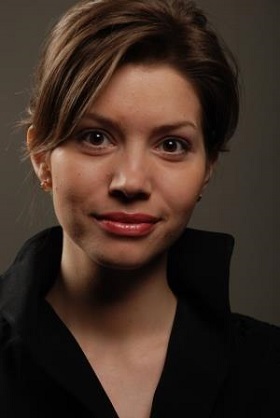Interview
El Salvador will have its second round of presidential elections on March 9, 2014. Two candidates are vying for the country’s highest governmental post: Salvador Sánchez Cerén from the left-wing Marxist Farabundo Marti National Liberation Front (FMLN) and Norman Quijano from the right-wing Nationalist Republican Alliance (ARENA). Anna Shcherbakova, a research associate at the Center for Political Studies, RAS Institute of Latin America, shares with the RIAC her thoughts on the political situation in El Salvador.
Interview
El Salvador will have its second round of presidential elections on March 9, 2014. Two candidates are vying for the country’s highest governmental post: Salvador Sánchez Cerén from the left-wing Marxist Farabundo Marti National Liberation Front (FMLN) and Norman Quijano from the right-wing Nationalist Republican Alliance (ARENA). Anna Shcherbakova, a research associate at the Center for Political Studies, RAS Institute of Latin America, shares with the RIAC her thoughts on the political situation in El Salvador.
How, in your opinion, will a shift in power impact the current state of affairs in El Salvador?
The winner of the presidential race, who will be inaugurated on June 1, will have to make difficult decisions on a wide range of issues. Nearly half of the population – 45.3 per cent– lives below the poverty line. According to the Economic Commission for Latin America and the Caribbean (ECLAC), unemployment reached 16 per cent in 2013, almost three times the level of unemployment in 2012. Social inequality is still one of the most acute problems in El Salvador, acting as a major driver behind the high level of crime. El Salvador has the second-highest murder rate in the Western Hemisphere, at 39.6 homicides per 100,000 people.
Security issues have therefore occupied a central position in this electoral campaign, and rightfully so. Sánchez Cerén favours a conciliatory approach to the “Maras” gangs, whereas Quijano proposes drastic measures. The former guerrilla leader rejects Quijano’s idea of using the army in the battle against gangs. Instead, he calls for a political solution to the current situation, which, in his opinion, is blocking the reforms needed to fight crime and slowing economic growth. In response, the former mayor of the country’s capital has accused the FMLN leader of colluding with the “Maras” to win votes in areas controlled by criminal groups. However, statistics indicate that the two-year truce between rival gangs “Mara Salvatrucha” and Barrio 18 has already led to a reduction in the murder rate, down 50 per cent in 2013 from the previous year.
The latest polls are predicting an electoral victory for Salvador Sánchez Cerén. Whatever the outcome, this Central American nation’s political reality will change on March 9.
In my opinion, if he replaces the centre-left Funes, Sánchez Cerén might attempt to enact the more radical measures that are characteristic of the FMLN. We can probably expect transformations in domestic and foreign policy in the spirit of the “Socialism of the 21st Century” project.
Can we expect a change of political course if Salvador Sánchez Cerén wins?
During his tenure as vice-president to the outgoing head of state, Sánchez Cerén repeatedly stressed the importance of Mauricio Funes’ policy and promised to continue on that course if he were to win the elections. More specifically, he promised to expand the social programmes initiated by El Salvador’s previous leader, who, despite his high approval rating, could not run for re-election as it is not permitted by El Salvador law. This applies first and foremost to the system of financial support for families with children in school. Before that, many parents simply did not let their children go to school, forcing them to work instead. The FMLN leader repeatedly emphasized the government’s crucial role in developing programmes for public schools and granting scholarships.
While maintaining the Funes administration’s key social programmes, Sánchez Cerén is likely to depart somewhat from his predecessor’s foreign policy. Back at the beginning of the campaign, the FMLN candidate announced that he would facilitate El Salvador’s accession to Petrocaribe, an agreement on energy cooperation under the aegis of Venezuela, which has already been signed by 17 countries in the region. In an interview, Sánchez Cerén said he would sign an agreement for El Salvador to join the Bolivarian Alliance for the Peoples of Our America (ALBA) immediately after his inauguration.




